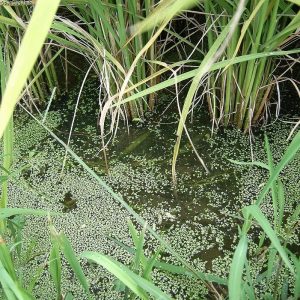 In honor of the upcoming opening of our Applied Physics section, here is a great example of how Physics and Biology can work together to find solutions for some of the biggest problems we are facing today: global hunger and climate change.
In honor of the upcoming opening of our Applied Physics section, here is a great example of how Physics and Biology can work together to find solutions for some of the biggest problems we are facing today: global hunger and climate change.
Researchers at the RIKEN Nishina Center for Accelerator-Based Science in Japan are using a particle accelerator to develop saltwater resistant strains of rice. Breeding plants to exhibit desired traits is not a novel concept in agriculture; however these researchers are speeding up the process of encountering mutations with positive results. An ion beam is fired at grains of rice to intentionally induce genetic mutations (about 10-100 times more mutations than would traditionally occur in the breeding process). The researchers then plant the grains to test their resistance to saltwater.
These efforts have been increased in the wake of the 2011 tsunami in Japan, which contaminated thousands of acres of farmland with seawater. The excess salt stunts or kills rice plants, having a detrimental effect on one of the country’s staple crops. Dr. Tomoko Abe, lead researcher on this project, is hoping to combat this problem in the future with her experiments. Out of 600 irradiated seeds from the accelerator, 250 mutant strains were created that were able to grow in saltwater and produce fertile seeds. The best strains developed so far only showed a twenty percent drop in crop yields when inundated with seawater. Researchers are hoping to continue to improve that number and elucidate the specific traits of these new strains that make them more successful under high salt conditions. Thanks to the particle accelerator technology, Dr. Abe hopes to be able to create an edible strain of salt-resistant rice in just a few years.
This research has the potential to not only help rice farmers in Northern Japan, but also increase crop yields in coastal areas around the world.
Do you think this practice is a good way to combat changing farming conditions and ensure food security in the future? Or do you feel that genetically engineered crops have the potential to cause problems both for human health and for the environment? Tell us what you think in the comments or tweet us
@JoVEJournal.

